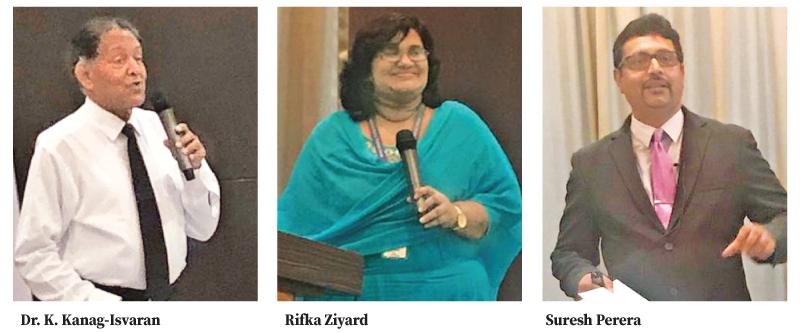
“The Trust Ordinance introduced in 1917 and amended in 2018 to combat money laundering, should be revisited to check whether the Ordinance is in line with new developments,” Dr. Kanag-Isvaran PC said.
He told a seminar on law pertaining to trust in Sri Lanka and the tax rules and planning opportunities using a trust in the context of the provisions of the new Inland Revenue Act and other tax statues, organised by KPMG Sri Lanka Academy, that the definition of a trustee in terms of the Inland Revenue Act has a wide meaning, including an executor, administrator, tutor or curator; a liquidator, receiver, trustee in bankruptcy or judicial manager.
He said the income tax implications of these holders of offices would attract the tax rules applicable to trusts contained in the new Inland Revenue Act.
Dr. Kanag–Isvaran outlined the parties to a trust and duties of a trustee.
Tax and Regulatory Principal Suresh Perera said that offshore trusts or non-resident trusts are commonly used for many purposes, including protection for family members with less knowledge on financial matters, protecting the assets from family law or marital regimes law, conducting charitable activities, implementing retirement plans and preserving confidentiality.
An appropriate jurisdiction to establish an offshore trust should be selected with due cognisance of many considerations, he said.
Direct and indirect taxes applicable on all three parties to a trust, viz: Settler, beneficiary and the trustees, must be carefully analysed. The residency of the Trust would play a role in analysing the inherent tax consequences, Perera said.
The amendment to the Trust Ordinance in 2018 registers and records information pertaining to express trusts.
Every Trustee of Express Trusts in Sri Lanka has been imposed with an obligation to register the Trust in Register of Trusts. The Trustee has the obligation to provide specified information pertaining to the Trust, he said.
Statutorily mandated information to be furnished by the Trustee includes name, address of the trust, purpose of the trust, details of the author, trustee, co-trustee and beneficiary. Address, contact number and valid document of identity are among the information to be collated, he said.
KPMG Tax and Regulatory Associate Director Rifka Ziyard said that the trustee of an incapacitated person is taxed as an individual. The progressive tax rates applicable to an individual would be available to a Trustee of an incapacitated person, including the personal tax free allowance reflecting the policy endeavour to benefit an incapacitated person.
